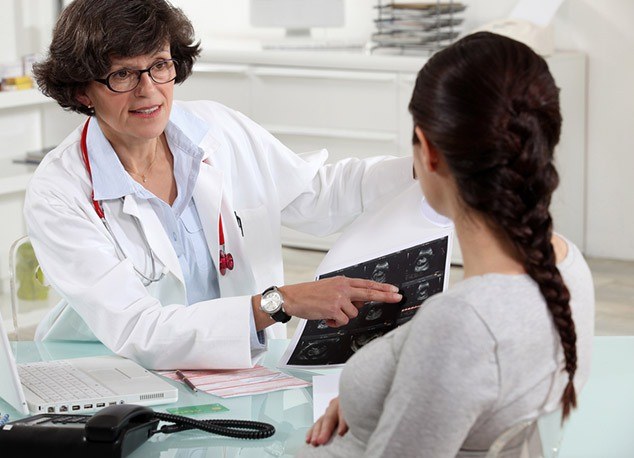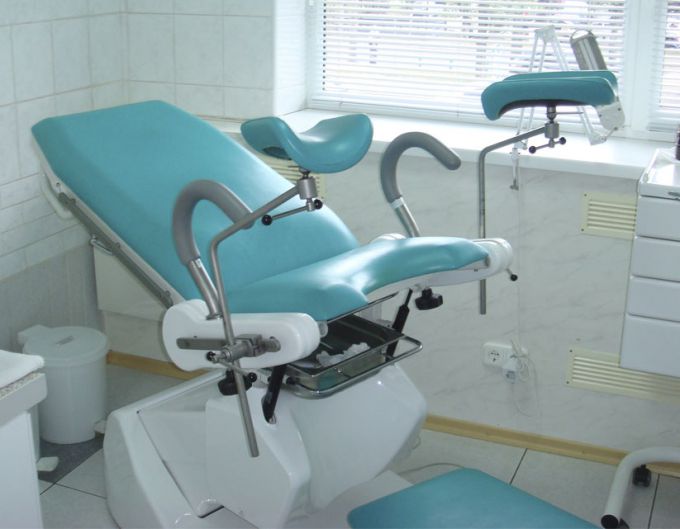Advice 1: How to visit a gynecologist for the first time
Already sexually active. Even if no deviations are observed, and everything is in order with women's health, it is necessary to do a preventive examination, take tests and do an ultrasound scan, this will help to avoid problems in the future. This is especially important who already have or have had sexual partners, as the risk of infections increases.
A visit to a gynecologist is sometimes necessary for other reasons. If by the age of 15 the girl has not yet started her period, you need to check with a doctor - this deviation from the norm can be an individual feature, but it can also be caused by any diseases. It is advisable to visit a gynecologist for the first time if the girl is going to have sex. It is imperative to check with a doctor if there is no regular menstruation after intercourse. Unpleasant and painful symptoms - itching, burning, strange discharge, pain - are also a reason to consult a specialist.
How to prepare for your first visit to your gynecologist?
First of all, you need to tune in psychologically, because most often the unwillingness to go to the gynecologist is caused by shame, embarrassment and fear. If a teenage girl has to go to the doctor, then it is advisable for the mother to talk to her daughter, explain why gynecological examinations are needed, and reassure her about painful and unpleasant situations. Older girls who are going to visit a gynecologist for the first time need to understand that a visit to the doctor is necessary for themselves, and that the specialist does everything possible to help the patient, and if the service does not like it, then you can turn to another doctor.
It is also necessary to prepare physically for the visit. It is advisable to tidy up the genital area: you do not need to shave off the hair, but you can shorten it, so it is easier to keep this place clean, and it is easier for doctors to examine it. When washing yourself before going to the gynecologist, it is important not to overdo it: just do your normal daily routine and put on fresh underwear. Douching in no case is necessary, it is very important for the doctor to examine the vaginal discharge to establish the absence or presence of infections. Do not use perfumes or deodorants for intimate areas. You do not need to visit a gynecologist during menstruation if there are no acute health problems. Just in case, it is advisable to take a sheet or towel with you, but many clinics today provide disposable towels.
The gynecologist will begin work with the patient with a survey, so prepare in advance to answer questions about the age of the first menstruation, the time of onset of sexual activity, and the methods of contraception used.
You should definitely contact a gynecologist when symptoms of "female" diseases appear. These include menstrual irregularities, lower abdominal pain, discharge, itching of the genitals and some others.
Delayed menstruation and leucorrhoea - reasons for visiting a gynecologist
A good reason for visiting a gynecologist is a delay in menstruation. The possible reason for this violation is. To make sure of this, you need to do a test, if it is positive, you should visit a doctor: women need to be regularly observed with. If, you still need to consult a doctor, as a delay may indicate any dysfunction of the genital organs.
If leucorrhoea (vaginal discharge) develops, you should also see a doctor. Leucorrhoea can be a symptom of inflammatory processes, infectious diseases, trauma, neoplasms (benign or malignant). Failure to seek medical attention in a timely manner can result in wasted time.
Purulent impurities in the leucorrhoea indicate inflammation, and the presence of blood in them indicates the possible development of a tumor process.
Leucorrhoea can also appear when the walls of the vagina descend, after prolonged use of chemical contraceptives, with congestion in the pelvic organs, caused by a sedentary lifestyle, and constipation. This unpleasant discharge has a negative effect on the nervous system and affects a decrease in libido, therefore, in this case, examination and subsequent treatment are necessary.
In what other cases do you need to contact a gynecologist?
It is imperative to go to a gynecologist if you have dysmenorrhea (painful menstruation), as it can be a sign of a disease (infection, endometriosis, or a tumor of the uterus). If you have heavy periods (menorrhagia), you should also see your doctor. Menorrhagia can be caused by an infectious disease, bleeding disorder, fibroma (benign tumor of the uterus), polyps, endometriosis, hormonal imbalance, lack of ovulation, excess prostaglandins, lack of progesterone. The doctor must find out the exact cause of this pathology and prescribe treatment.
Menstruation is said to be heavy if you change your tampon or pad more often than once in an hour.
The gynecologist should also be consulted if weakness or dizziness occurs during menstruation, if bleeding occurs between periods, if the onset of heavy bleeding is not preceded by characteristic premenstrual symptoms such as bloating, swelling of the mammary glands or increased appetite if the intervals between them are longer 45-50 days, as well as with the appearance of itching of the genitals, pain in the lower abdomen.
A healthy woman needs to visit a gynecologist once a year, with existing chronic diseases - much more often. The reason for an unscheduled visit to the antenatal clinic may be a suspicion of pregnancy or anxiety from the genitals.

Instructions
A gynecologist is a doctor who examines, diagnoses and treats diseases of the female genital organs. Also, this doctor conducts registration and monitoring of pregnant women. The gynecologist carries out planned treatment of patients with chronic diseases, conducts clinical examination of working women and other groups.
Girls need to visit a gynecologist from a young age, regardless of whether they are sexually active or not. The first examination by a gynecologist, as a rule, takes place in high school or upon admission to an educational institution. In adolescence, a visit to a gynecologist helps to identify violations of puberty, to diagnose inflammatory processes of the ovaries in time, since untreated adnexitis often leads to infertility.
If the girl is not worried about anything, she can postpone the next visit to the gynecologist for the period when she starts to have a sex life. During this period, a doctor's consultation is necessary to obtain information on those contraceptives that are suitable specifically for her body, on measures of protection against sexually transmitted diseases.
An adult woman, in the absence of unpleasant symptoms, should visit a gynecologist once a year. These preventive appointments with a doctor are necessary to detect erosions, fibroids, cysts and other diseases in the patient, which are often asymptomatic, but require careful observation and additional tests (biopsy, scrapings for atypical cells), because have a tendency to malignancy (degeneration into a malignant tumor).
If there is a pulling pain in the lower abdomen, profuse, soreness during intercourse and other pathological symptoms, a woman should immediately consult a gynecologist. The sooner the doctor performs a gynecological examination, diagnoses and prescribes treatment, the faster recovery will take place and the less chance of complications. Prolonged inflammatory processes lead to the development of adhesions that deform the lumen of the fallopian tubes.

A visit to a gynecologist is a rather unpleasant procedure, but you cannot do without it. After all, a woman may not even suspect that she has a gynecological disease due to the fact that many women's diseases proceed without pronounced symptoms. And in the absence of proper treatment, they lead to very serious complications, which include erosion of the cervix, impaired reproductive function, infertility and oncological diseases.
When is it necessary to visit a gynecologist?
As a rule, girls undergo the first examination by a gynecologist at the age of 15, during a medical examination at school. But this is on condition that there are no concerns from gynecology. If there is the slightest suspicion of a disease, then you need to go to the gynecologist immediately.
- · After a girl is sexually active, checkups with a gynecologist should become a normal regular occurrence. In the absence of complaints, a visit to the doctor should be made at least once throughout the year. When changing a sexual partner, examination by a gynecologist is required.
- After thirty years, a woman should come to see a gynecologist at least twice a year, that is, every 6 months.
- · During pregnancy, constant supervision by a gynecologist is mandatory. If the conception of a child is planned, then before that it is necessary to come for an examination to the doctor.
- · After childbirth and discharge from the hospital, a routine check should occur every month for three months to six months. If you have any complaints, then the visit to the gynecologist should in no case be postponed, in order to avoid serious health problems.
By and large, a visit to a gynecologist is unpleasant from the point of view of psychology, since intimate places lend themselves to "beholding". You need to tune yourself into the thought that even if a doctor is a man, he is first of all a doctor, and health is much more important than shame or awkwardness.
What else to read
THE LAST NOTES
- Advice 1: How to visit a gynecologist for the first time
- Winter Pickled Eggplant - Family Proven Recipes
- What time can a child's ears be pierced: when is it better to do the procedure and how to pierce
- Early Childhood Development Methodology: An Overview of Existing Systems
- Benefits for large families by September 1
